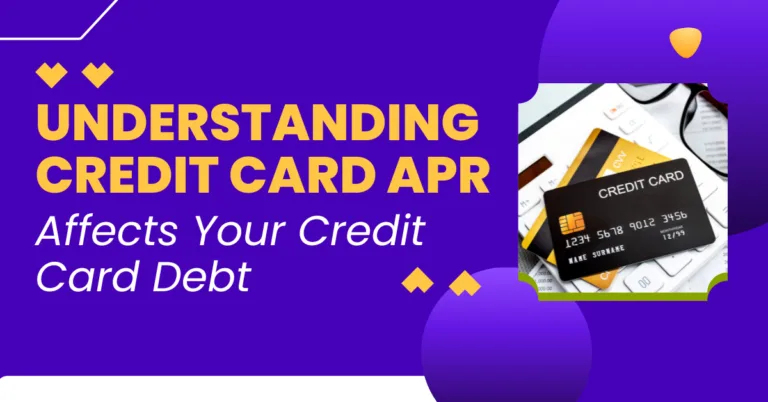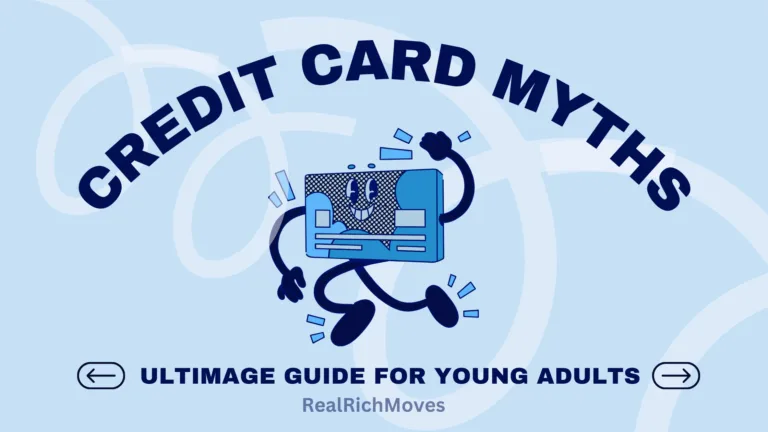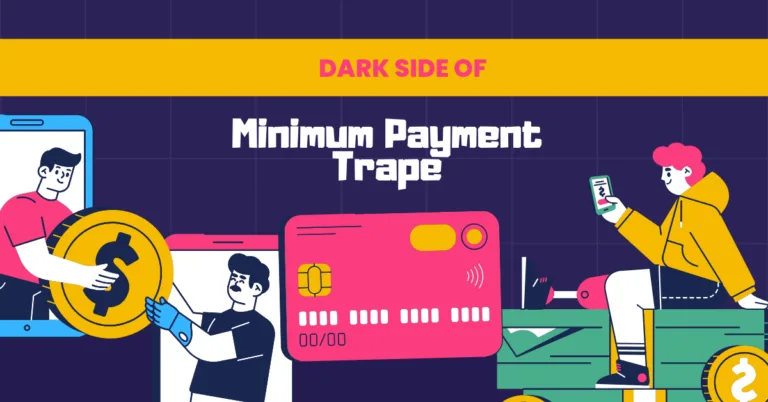Introduction
Hey fam! Let’s talk about something that might seem a little mysterious, but is actually super important for your future: your credit score. You’ve probably heard about it, maybe from a friend who got denied an apartment or a family member who keeps stressing about their loan application. But what exactly is a credit score and why should you even care?
Well, that’s what we’re diving into today! We’re breaking down everything you need to know about Credit Score 101, in plain language, no complicated jargon or boring lectures. We’ll cover why your credit score matters and how to build a solid score, so you can slay your financial goals. Let’s get into it!
This is your guide to understanding Credit Score 101 and building a positive credit history, which can be one of the most important steps in achieving your long-term financial goals. So, let’s demystify all the information related to Credit Score 101.
Now that you have a little bit of an idea why it is important, let’s dive into it more.
Credit Score 101: What is a Credit Score and How It Works?
Alright, let’s start with the basics. What exactly is a credit score, and how does it even work? Think of it as a financial grade, but it is more of a three-digit number that shows how trustworthy you are to lenders. It tells financial institutions how well you manage your money and how likely you are to pay back your debt. So it is not some complicated formula, it just reflects on your financial habits.
The Basics of Credit Score
Your credit score is essentially a numerical representation of your creditworthiness. It’s a number between 300 and 850, with higher numbers indicating a better credit risk. It’s not like a school grade that you can improve with hard work. It’s more of a snapshot of your financial behavior. Your credit report shows your credit habits, and that is used to calculate your credit score.
It’s crucial to understand that your credit score is not just some random number. It reflects your financial responsibility and your ability to handle credit. So, managing your credit carefully will have a major impact on your credit score. Understanding Credit Score 101 is the first step to building positive financial habits.
FICO Score vs. Other Credit Scores
You might have heard of different types of credit scores, but FICO is the most important one. The FICO Score is the most widely used credit score model by lenders, and it has become almost a default credit score. You may see other credit scores, but they are not as important, so focus more on improving your FICO Score. Understanding the difference between different credit scores will help you understand the basics of Credit Score 101.
While there are other scoring models, the FICO score is the gold standard and is used by most lenders to assess your creditworthiness. Keeping track of your FICO score will give you a better understanding of your financial health.
What’s in Your Credit Report?
Your credit score is actually based on the information in your credit report. So it is vital to understand what is in your credit report. Your credit report is a detailed financial history that includes your payment history, your credit utilization, the length of your credit history, your new credit, and the types of credit you have used. All these factors affect your credit score. Understanding your credit report is vital for understanding Credit Score 101.
Your credit report is the foundation of your credit score, so it’s important to review it for any errors. Make sure the information is accurate, because any mistakes could negatively affect your credit score. Understanding these key components will help you understand what factors affect your credit score. This knowledge is important when you are understanding the basics of Credit Score 101.
Now that you know what a credit score is, and how it works, let’s talk about why it even matters for Gen Z.
Okay, now that we’ve covered the basics, let’s get to the real talk. Why does your credit score actually matter? It might seem like just a random number, but it has a huge impact on your life, and knowing this is vital in understanding Credit Score 101.
Why Your Credit Score Matters: Real Talk for Gen Z
Your credit score is like your financial reputation and it impacts a lot more than you think. From renting your first apartment to getting a loan for that dream car, it’s a key factor that lenders use to assess your ability to manage money. So, it is vital to understand how important credit score is.
Renting an Apartment
First off, think about renting your first apartment. Landlords use credit scores to assess potential tenants. A good credit score can lead to easier approvals, and you can also get access to better rental options. But on the flip side, a bad credit score can make it very difficult to get an apartment, and you may have to pay higher security deposits. So, your credit score is important for something as basic as finding a good apartment.
It is very important to have a positive credit score if you want to get the apartment you want. Landlords check credit scores to assess risk before renting to someone. So be sure to work on your credit score if you are thinking about renting an apartment. It’s a major part of Credit Score 101.
Getting a Loan
Let’s talk about loans. Whether it’s an auto loan, a personal loan, or even a mortgage, lenders will always check your credit score. Your credit score has a direct impact on whether your loan application gets approved and the interest rates you will get. A good credit score will get you lower interest rates, while a bad credit score will either get you denied or you will have to pay very high interest rates.
So, having a solid credit score is essential if you are planning on taking out a loan anytime in the future. It is a crucial factor in your overall financial health. It is one of the most important things that you will learn in Credit Score 101.
Getting Credit Cards
You might also need a good credit score to get a credit card. Credit card companies check your credit score before approving your application, and also, the best credit cards are only offered to people with good credit scores. So, if you want access to better rewards and better credit card perks, you need to have a strong credit score.
It’s important to understand that good credit score is your key to better credit card offers with low interest rates, low annual fees and exciting rewards. So having good credit score is a great way to unlock those benefits. It is an important step in Credit Score 101.
More Than Just Loans: Other Ways Credit Score Affects You
It is not only about loans or getting a credit card, as your credit score can actually affect you in other ways too. Many cellphone companies check your credit score before approving you for a new phone plan, and insurance companies also check your credit score to determine premiums. Even some employers use credit scores as part of their background check, which is mostly for jobs where you will be handling finances. So, you can see how important credit score is, and it is not just for big financial decisions.
Having good credit score is also a way to secure better rates on your cell phone plans, or your car insurance, so it impacts all your life areas. Understanding the importance of credit score is a very important step in Credit Score 101.
Now that we know why having a solid credit score is crucial, let’s talk about how Gen Z can build their credit scores.
Alright, now that we’ve established why your credit score matters, it’s time to discuss how to actually build a solid one. No more confusion, we’re going to break it down, and make Credit Score 101 easy to understand. Let’s get into it.
Building Your Credit Score: A Gen Z Guide
Building a good credit score is not a complicated task, as it is mostly about consistency, and making smart financial choices. Here’s a practical guide to help you on your credit-building journey. It is a critical step in understanding Credit Score 101.
Start Building Credit Early
The best time to start building credit is as early as possible. Many young adults think they can wait until their mid-20s to start building credit, but that’s not true. The earlier you start, the better your credit history will be, and it will also give you enough time to fix any mistakes that you might make. If you are a student, consider getting a student credit card or a secured credit card to start building credit.
Starting early also allows you to learn from your mistakes and also allows your credit score to grow over time. So starting early will give you more advantage in building a good credit score. Early start is an essential part of Credit Score 101.
Payment History is Key
Your payment history is the biggest factor that determines your credit score, so it is very important. Always pay your bills on time, because even a single late payment can have a negative effect on your credit score. So it is vital to pay all your bills on time, no matter how small they are. Missing your payment due date is the worst thing you can do to your credit score.
Setting up automatic payments can be a great way to avoid missed payments and stay on top of all your payments, so your payment history will be positive, which will increase your credit score. Paying your bills on time is the key aspect of understanding Credit Score 101.
Manage Credit Utilization
Another major factor in your credit score is credit utilization. Your credit utilization is the amount of credit you’re using vs the amount of credit available. A high credit utilization is a sign that you are struggling with your debts, and it negatively impacts your credit score. Experts recommend to keep your credit utilization below 30%, so if you have a credit limit of $1000, then you should not have a balance more than $300.
Managing your credit utilization is an important step in maintaining a solid credit score. It also shows credit card companies that you can manage your debt responsibly. So be aware of your credit utilization if you want to improve your credit score. It is a critical part of understanding Credit Score 101.
The Importance of Credit History Length
The length of your credit history also plays an important role in determining your credit score. The longer your credit history, the more reliable you appear to the lenders, which positively impacts your credit score. This means you should not close old credit card accounts, as they are boosting your credit score by adding to your length of credit history. So keep your old credit cards open and use them minimally.
A longer credit history shows financial stability and responsibility, so do not close your old credit accounts. It shows that you can handle credit responsibly. Having a long credit history is also a vital part of Credit Score 101.
Be Smart about New Credit
Avoid opening too many new credit accounts at the same time, because that can hurt your credit score. Applying for too many cards or loans at the same time makes you look desperate for money, and negatively impacts your credit score. Be selective with your new applications, and only apply for what you really need.
Be smart about new credit and avoid applying for multiple credit cards at the same time, to keep your credit score healthy. Applying for credit wisely is an important concept to understand in Credit Score 101.
Diversify Your Credit Mix
It is helpful to have a mix of different types of credit. This means having a combination of credit cards, student loans, personal loans, etc. Having a mix of different credit types positively impacts your credit score. So, try to diversify your credit portfolio, if it is suitable for your financial goals.
Diversification shows that you can handle different types of financial responsibilities. It also helps credit agencies see the bigger picture of how you manage debt. It’s important to understand the concept of diversification in Credit Score 101.
Now that you have a pretty good understanding of how to build a solid credit score, let’s talk about how to check your credit score, and what you can do to improve it, if it is not as good as you want it to be.
Okay, so you’ve learned how to build a good credit score, and now it’s time to understand how to actually check your credit and what you can do to improve it if needed. Let’s talk about the next steps in Credit Score 101.
Checking and Improving Your Credit Score
Knowing how to check your credit score and how to improve it, is just as important as building it in the first place. So let’s get down to it.
How to Check Your Credit Score for Free
You don’t have to pay money to check your credit score. There are many free ways to check your credit score. Websites like Credit Karma, Experian, and others provide your credit score for free, and they don’t affect your score at all. Checking your credit score frequently is a great way to keep track of your financial health.
You should check your credit score regularly to stay on top of your financial health, and also to take necessary steps to improve it if needed. Checking your credit score is an important step in Credit Score 101.
How to Get a Free Copy of Your Credit Report
You can get a free copy of your credit report from AnnualCreditReport.com. It is a good idea to get a free copy of your credit report from each of the three major credit bureaus (Equifax, Experian, and TransUnion) at least once a year. You should review your credit report and make sure all the information is correct.
If there are any errors, dispute them right away. Checking your credit report frequently is a great way to detect errors and also catch identity theft as early as possible. Reviewing your credit report should be a recurring event in your financial habits. This is a vital part of Credit Score 101.
How to Improve a Bad Credit Score
If you have a bad credit score, don’t worry, it’s not the end of the world. It can be improved. Start by focusing on paying all your bills on time, reduce your credit card debt, and also dispute any errors in your credit report. It takes some time and patience to repair damaged credit, so be persistent in your efforts to improve your credit score.
Improving a bad credit score is not an impossible task. It will take effort and patience, but by implementing all the strategies you have learned today, you can definitely improve your credit score. Keep learning the different aspects of Credit Score 101 to get a better understanding of how you can improve it.
We’ve covered a lot today, and now it’s time to wrap it all up.
Okay, fam, we’ve reached the end, and I hope you have a better understanding of Credit Score 101. You have all the tools you need to take control of your financial health.
Conclusion: Your Credit Score Matters, Take Control!
Let’s recap what we’ve learned today. Your credit score is a three-digit number that reflects your creditworthiness, and it matters a lot more than you think. It impacts your ability to rent an apartment, get a loan, get a credit card and other important things in life. By understanding how credit scores work and how to build a strong score, you can take control of your financial future.
Remember to start building credit early, pay your bills on time, manage your credit utilization, and also review your credit report regularly. Your credit score is a tool, and you have the power to use it wisely. So, make sure you take control of your financial life.
Ready to take control of your credit score? Check out our free guide on how to improve your credit score!
Click here to learn more about credit cards and their impact on your financial future. Also check our main blog post related to Credit Card Myths, to learn more about it
Leave a comment below with what you thought about this post.







